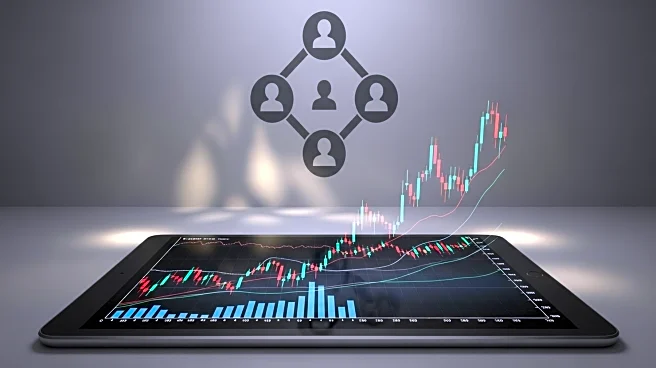What's Happening?
Robinhood has announced the launch of 'Robinhood Social,' a new feature allowing users to follow and manually replicate trades of prominent investors. This marks a significant shift for the brokerage, which previously warned competitors about regulatory risks associated with copy trading. The platform will require identity verification and proof of actual portfolio positions, differentiating it from informal social media trading. Robinhood plans to initially invite 10,000 users to test the service before a wider rollout. This move comes after criticism from competitors like Dub, which offers a more educational approach to trading.
Why It's Important?
Robinhood's entry into copy trading could signal a shift in the regulatory landscape, potentially opening the market for similar platforms. The feature may attract new users interested in replicating successful trades, boosting Robinhood's user base and revenue. However, it also raises concerns about the gamification of trading and the potential risks for inexperienced investors. The move reflects Robinhood's strategy to expand its offerings and compete with established players like eToro, which has offered copy trading in the U.S. for years.
What's Next?
Robinhood's launch of copy trading may prompt other fintech companies to explore similar features, potentially leading to increased competition in the market. Regulatory bodies might scrutinize these platforms more closely, ensuring compliance with trading laws. Robinhood's success in navigating the legal landscape could encourage other companies to follow suit, expanding the availability of copy trading in the U.S.
Beyond the Headlines
The introduction of copy trading highlights the evolving nature of fintech and the balance between innovation and regulation. It raises ethical questions about the responsibility of platforms to educate users and prevent risky trading behaviors. The feature's impact on retail investors and the broader financial market remains to be seen, as it could either democratize trading or exacerbate existing inequalities.










